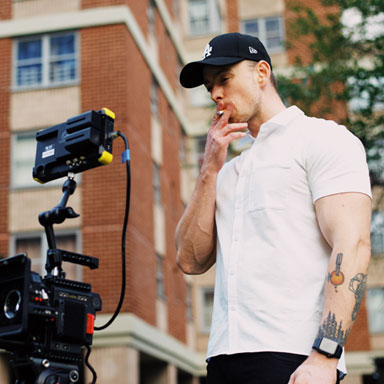A Tale of springtime
A Tale of Springtime (1990), the debut passage in Eric Rohmer’s “Stories of the Four Seasons” a group of four of independent movies. We first see Jeanne (Anne Teyssèdre) leaving the Lycée Jacques Brel, spotlights in the midst of the understudies by her overcoat, siphons, and belted chinos. Jeanne passes through a suburb and across the Seine into focal Paris, where she enters a condo throng with tangled bed sheets, men’s shirts, and the scraps of a half-eaten roll. Before long leaving her reflexive cleaning to gather a gym bag with a few garments and two volumes of theory (Plato and Kant), she then, at that point, drives to a subsequent loft. Here she tracks down things in better request, save for the unusual youngster (Marc Lelou) in his undies. Is this place her home, and not the other? It is and it isn’t, we learn, as her cousin and houseguest Gaëlle (Sophie Robin) shows up and inquires as to whether she and her beau can remain a couple of more days. Jeanne says no issue, claims she was just making a trip to change out some garments; it’s spring, she adds. This independent movie shows the straightforwardness with which Jeanne takes on the misrepresentation of simply going through welcomes the watcher’s appreciation how charitable she is. Is this duplicity for the sake of graciousness, or the other way around? Where does this lady reside? How to quantify what Jeanne says and what she truly means?
Next the independent movie shows Jeanne in one more condo, pausing dramatically as the fringe party visitor. Situated on a love seat separated from the activity, she is joined by Natasha (Florence Darel), an eighteen-year-old studio understudy who has quite recently been abandoned there by her a lot more seasoned sweetheart. Discuss when and how to get away from the party goes to that of their individual day to day environments: Jeanne’s sweetheart, Mathieu, is away, and she can’t tolerate staying in his condo alone; Natasha currently has her youth home to herself, her separated from father Igor (Hugues Quester) having actually moved in with his twenty-year-former sweetheart, Ève (Eloïse Bennett).
Limited by their route of various temporary stages, the pair’s differentiating show recommends a bigger change underway. In her shoulder braces, iced lipstick, and Mary Lou Retton crop, Jeanne, a way of thinking student in her late twenties, actually cuts a ’80s outline. Wearing squashed velvet bodysuits and super high-waisted everything, at the turn of the ten years Natasha as of now has the two feet during the ’90s. However the distance between them changes just somewhat their commitment with the inquiries that beset so many Rohmer characters: how to shape one’s very own sound record wants and act as per them, how to wed ideas of selfhood with one’s genuine self, how to claim what one as of now has. Jeanne acknowledges Natasha’s encouragement to go through the night at her condo, a tenderly feeble space with unique moldings where the host gripes about her mom and Ève, mourns her dad’s bombed abstract desires, plays from Robert Schumann’s Songs of Dawn on the piano, and displays a young lady’s joy in showing Jeanne her room.
By turns of speculative and far reaching, associations among Jeanne and Natasha structures the independent movie different temperaments, plans, and thoughts stream. Each sees an open door in the other; and Jeanne the solution for her purposeful exile, and Natasha a more reasonable sweetheart for her dad. At the point when Natasha imagines a progression of experiences among Jeanne and Igor-a gentle, reserved government worker Jeanne will see what occurs. In spite of detesting Mathieu’s own problem, Jeanne faults their relationship’s present disquietude on the unsound whole between acting and really being hitched. At the point when Natasha communicates shock at Jeanne’s arrangement to marry a man she has quite recently called “absolutely terrible,” Jeanne shrugs in the method of somebody who has acknowledged the split difference and reasonableness as the genuine tunes of grown-up life. Enough uncertainty waits, in any case, for her to fiddle with Rohmerian financial matters by which very verbose people joined others of heartfelt love and individual flexibility, cognizant to the place of loss of motion of getting the best arrangement, settling on the ideal decision, waiting for anything the genuine article could be.
However in this independent movie various scenes work out in the peaceful setting of Natasha and Igor’s ranch style home where irritable, father fixated on Natasha conflicts with priggish, hair-washing Ève, and Jeanne and Igor talk in circles around the independent movie scenes. These characters are volatile, pressing and unloading their packs. Here as in every passage in the independent movie series four-seasons series, Rohmer separates from what adds up to constant human vacillating an account of fleetingness and probability. The scenes are full of long takes and basic, picture-book arrangements with a talkative content whose gab fills in as chat that are fundamentally an interruption.
In question is the moving connection among character and conduct, substance and articulation, what is steady and what stays subject to consistent change. Least when they depict themselves, which they do often and finally, Rohmer’s characters make mindfulness resemble self-dream. They are additionally equipped for swelling bluntness. This independent movie makes the sex look great since we realize it won’t endure; I’m simply playing this out until something better goes along. About affection they are on the double realists and genuine adherents, confiding in possibility yet filling the interval with cold appraisal. Anything that win heartfelt connection bears the cost of such anxious animals has less to do with individual (significantly less sexual) satisfaction than the desire for fixing one’s self on schedule; of facilitating, in any event, for a brief period, its persistent entry.
All through this independent movie ‘A Tale of Springtime’ Jeanne presents herself as fastidious and awkward; “obsessive with regards to others’ opportunity”; somebody who “contemplates her considerations, a lot”; not distraught and in this manner not equipped for cherishing frantically. Others notice her quiet: genuinely her strong presence cuts against Natasha’s frilling and Igor’s disquiet. Teyssèdre emanates an inconspicuous attraction, her face a glinting cover, her energy a kind of passionate separation. Seen a good ways off, Jeanne’s ethical pith is clear, yet in the independent movie existence she stays mysterious. It is this hole that intrigues Rohmer, and that watchers are welcome to consider, pushing past their judgment toward something nearer to acknowledgment. A wellspring of imprudence on occasion, the hole additionally gives the light access. The independent movie impact is subtle, total, and similar as that of years gone past. Springtime closes on a note of acquiescence and pleasantness, its last minutes manifesting the help of probability’s conclusion: the comfort of having picked, uninhibitedly and with sincere intentions, before it’s past the point of no return.




